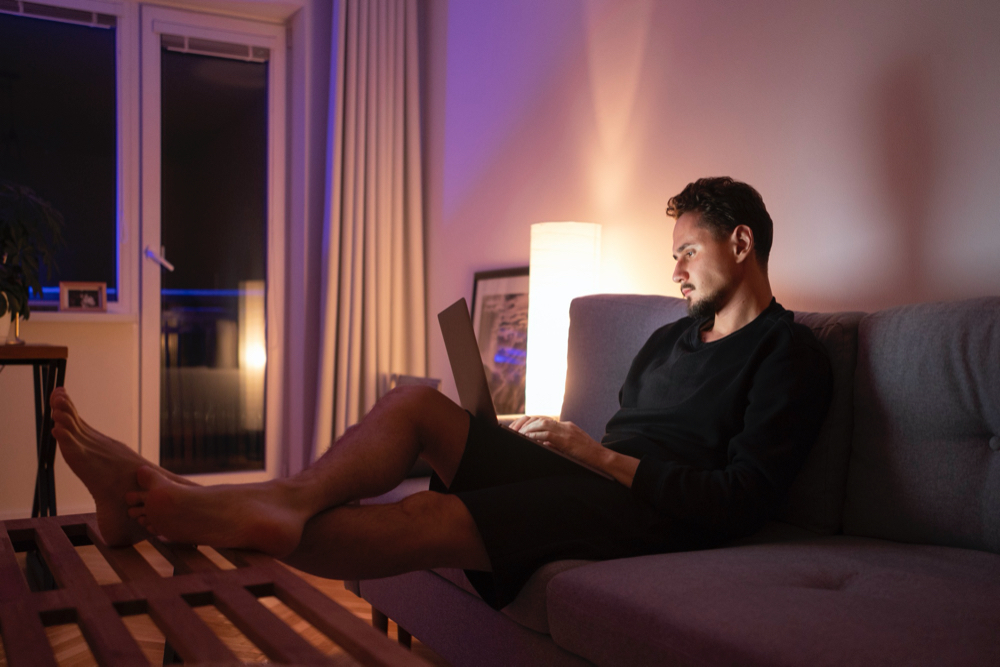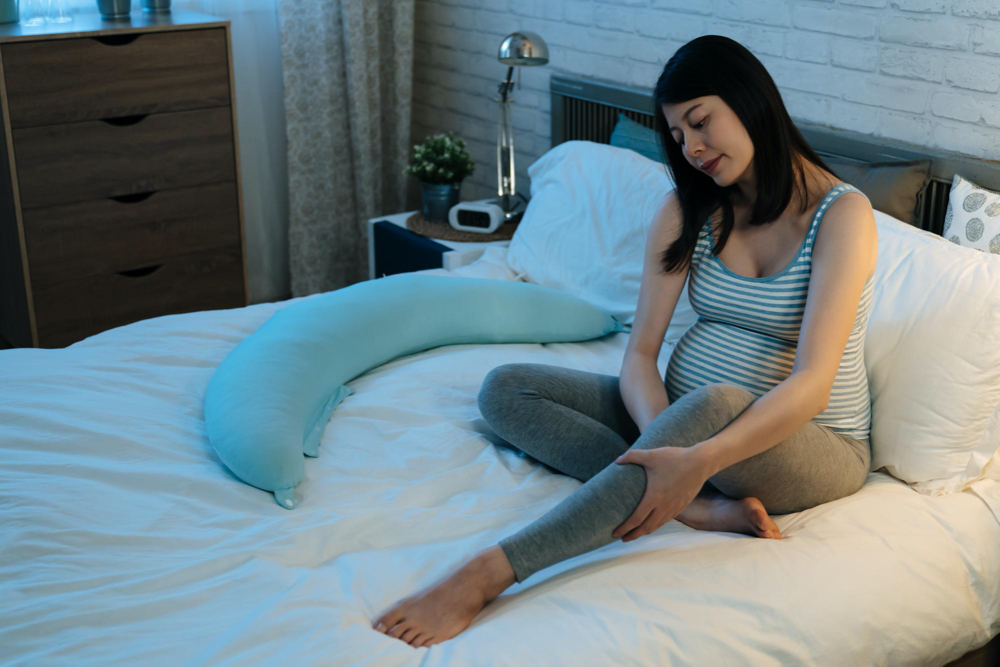- Fast results
- 4,000+ locations
- 4.8 star rating
Need Help? (888) GET LABS


According to American Family Physician, around 60% of adults have been reported with nocturnal leg cramps. This is a recurrent, painful tightening of the calf muscles and can cause severe insomnia.
Leg cramps are sudden and sometimes ignored. However, these can be signs of health problems due to medications, pregnancy, dehydration, alcohol, mineral depletion, and medical conditions are a few causes of night leg cramps.
If you are experiencing sudden night leg cramps more often, here’s a rundown of the issues associated with it.
There are medications that cause leg cramps at night. According to research, nocturnal leg cramps can be linked to some prescription drugs such as antidepressants, steroids, or diuretics.
For example, if you are in medical treatment with a diuretic medication, there can be electrolyte disturbances, and you are more likely to experience muscle cramps at night.
Here are other medications that are linked to leg cramps to look out for, such as:
If nocturnal leg cramps persist, consider consulting your doctor for proper guidance. This is for you to know what medications to take and not to take to mitigate the occurrence of the condition.
For pregnant women, leg cramps are common, but some experts consider pregnancy-related leg cramps different from nocturnal leg cramps.
This may also be due to pregnancy fatigue, hormone changes, compression of the blood vessels in the legs, diet, or increased demand for nutrients in the body.
Nocturnal leg cramps can be a symptom of underlying issues among pregnant women and should be taken seriously to avoid complications.
Dehydration occurs when your body does not have enough fluids and electrolytes. It can be mild with signs of extreme thirst to life-threatening cases.
As dehydration affects many normal body functions, it lowers blood flow, causing muscle cramps in your calf and thigh muscles and spasms.
However, experts did not directly link dehydration to muscle cramps, as a whole. Hence, it’s not one of the direct causes of night leg cramps. Nevertheless, it could contribute to the severity of the condition.
Therefore, drinking water regularly is essential to have a healthy body.
In a case-control study about nocturnal leg cramps and alcohol, it has been shown that people over 60 years old who drink alcohol are highly susceptible to nocturnal leg cramping.
Alcohol builds up lactic acid in the body and having large amounts of lactic acid in the muscles can result in leg pain and cramps.
Additionally, drinking alcohol leads to a loss of fluid in the body that could cause dehydration. Therefore, it can contribute to the development of leg cramps and spasms at night.
According to Hayden Institute, deficient calcium and magnesium play a part in muscle cramping.
Leg cramps or spasms happen because of the inability to contract or relax the muscles efficiently. For a muscle to relax, there should be enough magnesium as it helps nerves and muscles to function properly. Moreover, for muscle contraction, calcium is utilized and
A study published in the NCBI journal shows that chronic medical conditions are associated with nocturnal leg cramps. Thus, many underlying health issues can cause nocturnal this condition you have to pay attention to.

a. Peripheral artery disease
With peripheral artery disease, the cholesterol clogs or blocks the blood vessels in the legs, which affects blood flow. This can trigger cramps since there is not enough blood getting through the veins in your legs.
b. Multiple Sclerosis
Some people with multiple sclerosis experience spasticity or muscle tightness leading to leg cramps. Spasticity may seem like a mild tightness or tingling in your muscles, but in some cases, it can cause severe pain and cramping.
c. Osteoarthritis
Osteoarthritis is categorized by stiff and achy joints. Patients with this condition can experience muscle spasms and leg cramps due to damaged cartilage and surrounding tissues.
In addition, osteoarthritis of the spine can be linked to leg cramps, leading to pinched nerves or nerve damage when severe.
d. Diabetic peripheral neuropathy
People with type 2 diabetes are prone to nerve damage in the legs, arms, and hands.
This is called diabetic peripheral neuropathy and can lead to feelings of tingling and numbness. In addition, you can experience muscle twitching and full-blown leg cramps when the nerves don’t function properly.
Seeking diabetes treatment can help reduce nerve damage. If you are at risk for the condition, you should secure the necessary diabetes blood tests for diagnosis and management.
e. Hypothyroidism
Hypothyroidism and nocturnal leg cramps are associated with one another.
Hypothyroidism makes the body produce too little thyroid hormone, damaging the nerves. In other words, these nerves that send signals from your brain and spine to your arms and legs do not work properly. Furthermore, tingling, numbness, and cramps are symptoms of underactive thyroids.

Experiencing night cramps in the legs and feet is painful and inconvenient. But, here are some easy ways to treat severe leg cramps at night when it happens:
According to an article published in the National Library of Medicine, having nocturnal leg cramps is an indicator and possibly contributes to poor sleep and general health.
For this reason, below are some ways you can practice and do at home to prevent night leg cramps and start a healthy lifestyle.
Hydration. Drinking enough water a day can reduce leg cramps by providing electrolytes in the veins. Drink 6 to 8 glasses of water per day to prevent loss of electrolytes and a reduced amount of salt and fluid in the body that can cause leg cramps and muscle spasms.
Exercise Properly. Exercise-associated cramp is a cmon after exercising. You should make sure that you have the proper fit of shoes to support your feet correctly. Overexertion can contribute to leg cramps. So, perform adequate stretching before and after the exercise.
Bedtime preparation. Do gentle stretches or mild exercises. For example, do gentle stretches or biking before bed. Furthermore, adjust your sleeping position. For example, Dr. Matthew Goldman suggests that you can try using pillows to keep your feet up if you are sleeping on your back. If you sleep on your stomach, you can hang your feet off the bed. Thus, these sleeping positions can help you relax while asleep.
Healthy Diet. Eating healthily and consuming food rich in minerals such as sodium, potassium, magnesium, calcium, and carbohydrates can help prevent the occurrence of nocturnal leg cramps. Some of them are electrolytes that help the body to maintain average body-fluid balance, blood pressure, nerve impulse generation, and muscle contraction.
Experiencing pain in the calf at night is often disregarded and deemed normal, especially when it only happens occasionally. However, it can also be an indicator of underlying health issues. Consequently, leg cramps can affect our quality of life.
Therefore, you should start paying more attention to the sensation in your body and start practicing a healthy lifestyle. By and large, seeking advice from a professional health care provider for nocturnal leg cramps is also vital to receive proper care and medication.


We now offer pharmacy discounts through our PersonalabsRx platform.
We now offer pharmacy discounts through our PersonalabsRx platform.